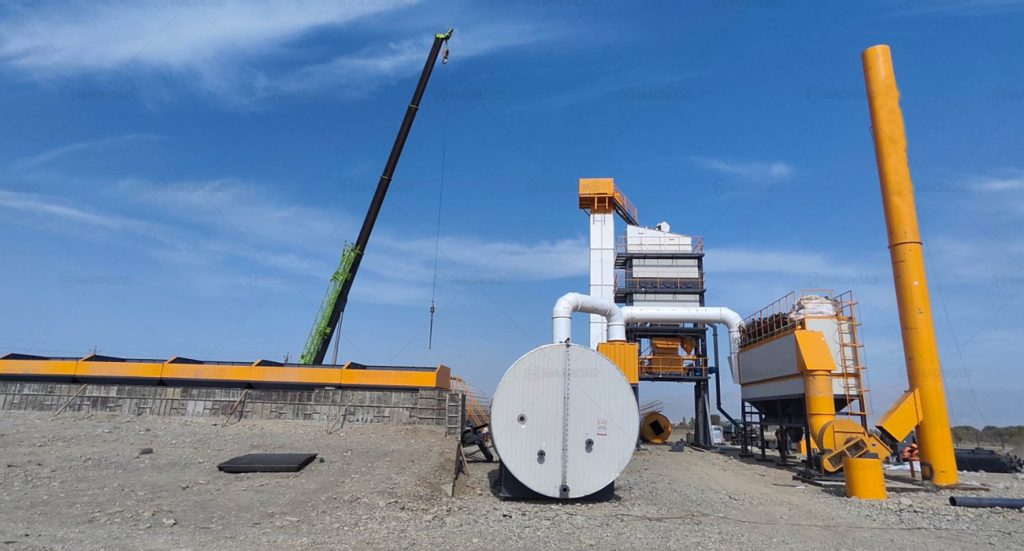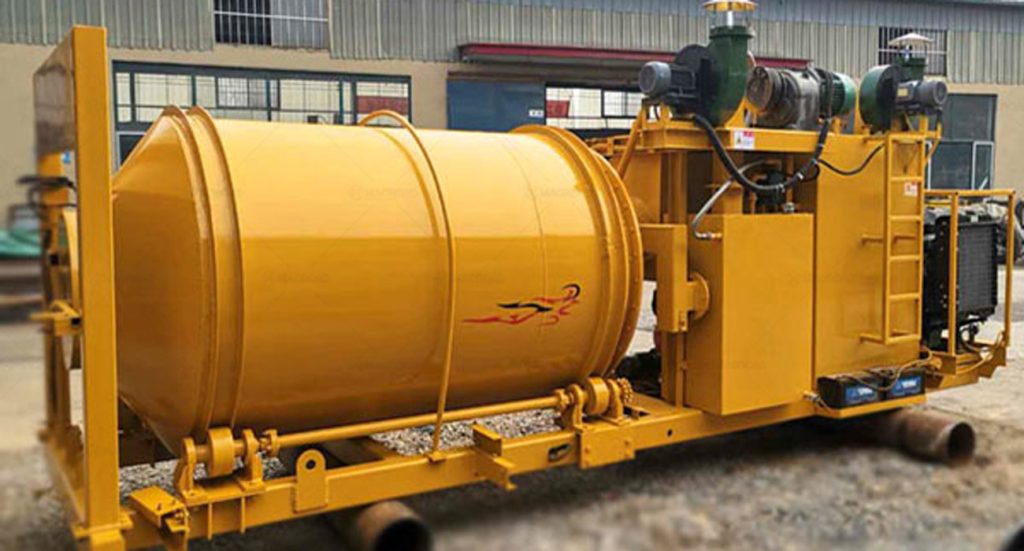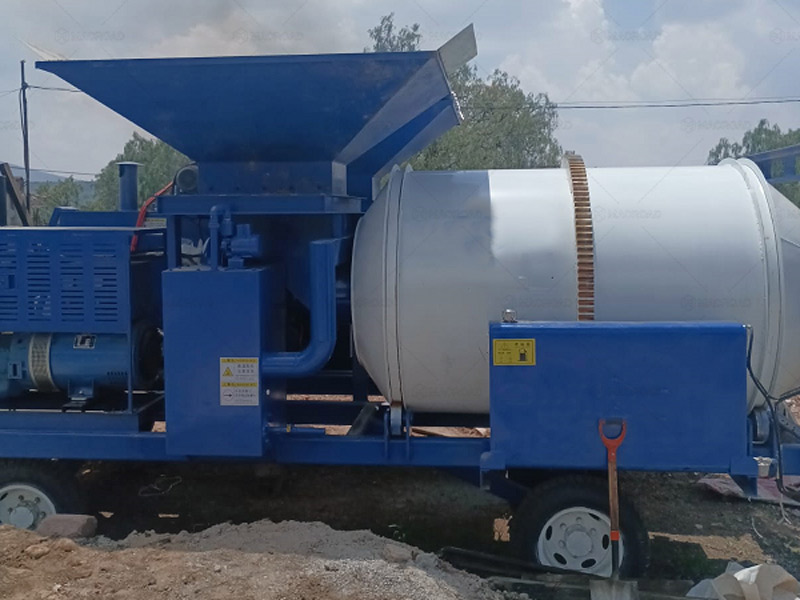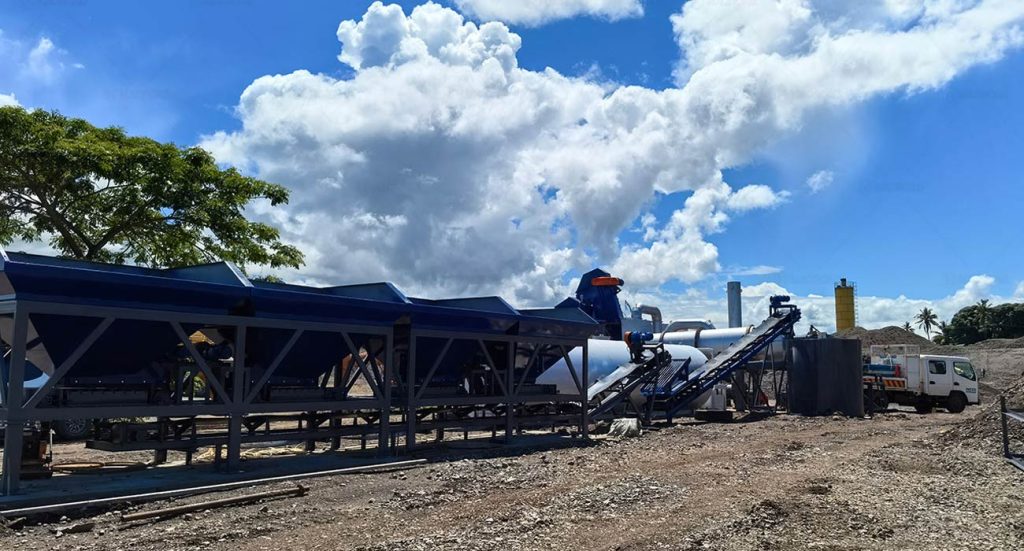In urban road maintenance and small community infrastructure projects with limited construction space, the design of asphalt plants plays a crucial role in optimizing the layout of mini asphalt batching plants and mini mobile asphalt mixing plants. By focusing on reducing the footprint while ensuring essential production functions, asphalt plant design can effectively meet the unique challenges posed by these environments.

Compact Layouts for Mini Asphalt Batching Plants
Mini asphalt batching plants are specifically designed to occupy minimal space while still delivering high-quality asphalt. The compact layout of these plants is achieved through innovative engineering that integrates essential components in a streamlined manner. This design allows for all production functions—such as aggregate storage, heating, mixing, and loading—to be housed within a smaller area.
Key features of mini asphalt batching plant include vertical storage silos, which maximize vertical space and reduce the overall footprint. Additionally, modular designs enable easy assembly and disassembly, making these plants particularly suited for urban settings where space is at a premium. This compact design not only facilitates efficient operations but also minimizes the environmental impact associated with larger, traditional asphalt plants.

Flexibility of Mini Mobile Asphalt Mixing Plants
Mini mobile asphalt mixing plants offer another solution for urban road maintenance and small infrastructure projects. These plants are designed for portability and flexibility, allowing them to be easily transported to various sites as needed. The layout of mini mobile asphalt mixing plants emphasizes essential production functions while maintaining a compact form.
The modular structure of these plants allows for quick setup and takedown, which is ideal for projects with tight timelines and limited space. Features such as integrated control systems and compact mixing units ensure that the plants can produce asphalt efficiently without requiring extensive space. This adaptability makes mini mobile asphalt mixing plant a preferred choice for urban environments, where the ability to relocate quickly can significantly enhance productivity.

Integration of Technology in Asphalt Plant Design
Modern asphalt plant design increasingly incorporates technology to optimize production while minimizing space requirements. For both mini asphalt batching plants and mini mobile asphalt mixing plants, the integration of advanced control systems allows for precise management of the mixing process, ensuring consistent quality without the need for large operational areas.
These control systems can monitor and adjust parameters in real time, reducing waste and improving efficiency. Furthermore, incorporating automation into the layout can streamline operations, allowing fewer personnel to manage production effectively. This technological integration not only enhances the efficiency of the plants but also aligns with the growing demand for sustainable practices in construction.

Addressing Site-Specific Challenges
In urban settings, asphalt plant design must also consider site-specific challenges such as zoning regulations, noise restrictions, and environmental concerns. The compact design of mini asphalt batching plants and mini mobile asphalt mixing plants accommodates these factors by minimizing their visual and auditory impact on surrounding areas.
To further enhance sustainability, modern designs often include features such as dust control systems and noise reduction technologies. These considerations ensure that plants can operate effectively without disrupting the local community, making them more acceptable in densely populated areas. As urban infrastructure continues to evolve, addressing these challenges through innovative asphalt plant design will be crucial for successful project outcomes.
Conclusion
In conclusion, optimizing the design of mini asphalt batching plants and mini mobile asphalt mixing plants is essential for urban road maintenance and small community infrastructure projects with limited construction space. By focusing on compact layouts, flexibility, technology integration, and site-specific challenges, asphalt plant design can effectively reduce the footprint while ensuring that essential production functions are met. Companies like Macroad are leading the way in creating efficient and adaptable asphalt solutions that meet the demands of contemporary urban environments, contributing to the future of infrastructure development.